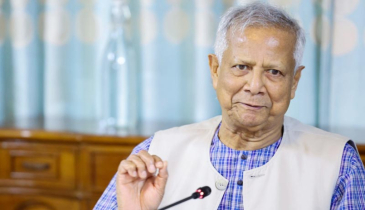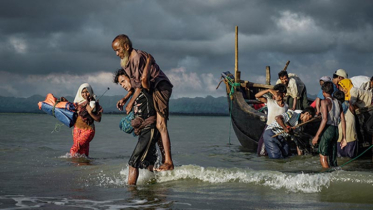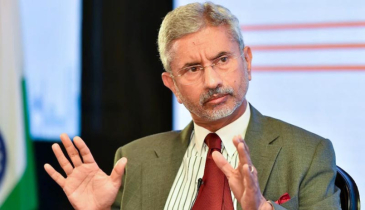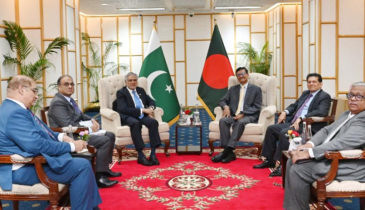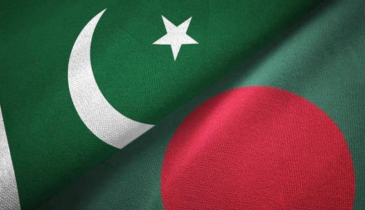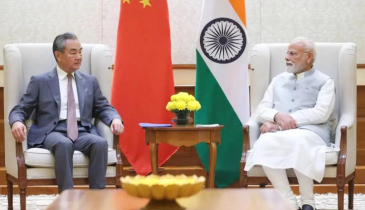Rohingya crisis: Repatriation uncertain even after 8 years
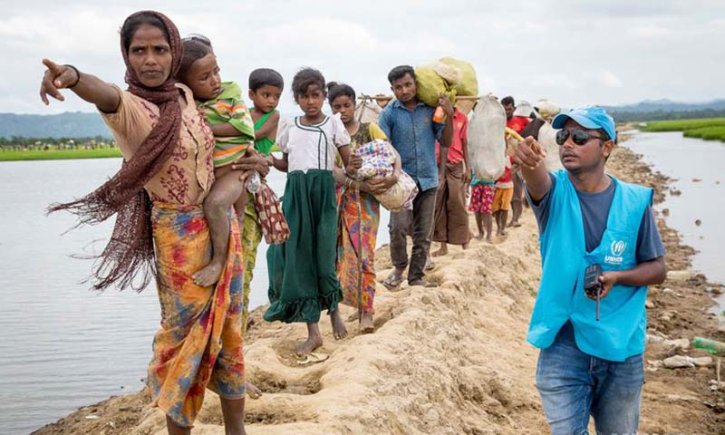
While all past attempts to repatriate the Rohingyas since 2017 have failed, the Arakan Army's (AA) sweeping control of Rakhine State has further complicated matters for Bangladesh.
On August 25, 2025, Rohingya refugees marked the eighth anniversary of their mass exodus from Myanmar, poignantly observed as “Rohingya Genocide Remembrance Day,” with tens of thousands gathering in Kutupalong camp carrying banners demanding a safe and dignified return. The commemoration coincided with a three-day international conference in Cox’s Bazar, attended by UN officials, foreign diplomats, and Bangladesh’s interim government led by Nobel laureate Muhammad Yunus.
Repatriation: A Process Stalled by Conflict and Instability
Despite a 2017 bilateral agreement with Myanmar, repatriation efforts have consistently faltered. Myanmar’s increasingly fragmented landscape—with escalating clashes involving the Arakan Army and junta forces—has rendered return infeasible. Bangladesh submitted up to 800,000 names of Rohingya eligible for return; only 180,000 were acknowledged by Myanmar, while 70,000 more remain in verification limbo, leaving the majority with no path home.
Funding Crisis Intensifies Humanitarian Threats
The 2025–26 Joint Response Plan seeks nearly US$934 million to aid nearly 1.5 million people—Rohingya refugees and their host communities alike. Yet pledges remain tragically insufficient: by mid-2025, less than 20% of the needed funds had been secured.
The World Food Programme has already halved monthly food rations—cutting vouchers from US$12.50 to US$6 per person—a move that will severely exacerbate hunger, malnutrition, and protection risks, especially among women and children. UNICEF has also suspended contracts for over 1,100 volunteer teachers serving early grade learners, endangering the education of roughly 230,000 Rohingya.
Tragic Journeys at Sea Highlight Growing Desperation
In May 2025, two boats carrying Rohingya refugees capsized, resulting in the deaths of around 427 people—a harrowing symbol of their desperation. UNHCR cites funding cuts—including a freeze on over US$300 million in aid—as partial drivers of this crisis, noting just 30% of a US$383 million appeal was met.
Bangladesh and International Diplomacy
Chief Advisor Muhammad Yunus warned that Bangladesh can no longer shoulder the burden alone, urging the global community to act decisively and offering a seven-point plan to address the crisis. Bangladesh had organized a stakeholder dialogue in Cox’s Bazar, reaching out to ASEAN partners, including China, India, and Japan, and seeking alignment before a UN session in New York.
Notably, Malaysia—via Prime Minister Anwar Ibrahim—committed to dispatching an ASEAN peace mission to Myanmar, offering a rare diplomatic opening.
However, with the Arakan Army now controls 14 of 17 townships in Rakhine—including the Bangladesh border.
For Dhaka, the path forward is fraught with difficulty. On the one hand, the government faces a challenging task of navigating the discussion between military Junta and the Arakan Army, which effectively controls the region; on the other hand, the camps are heading towards a future where they may become a permanent source of instability and a potential hotbed for regional conflict.
.png)


